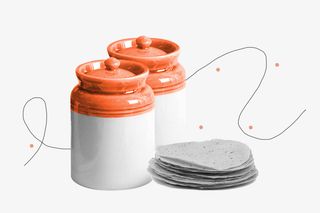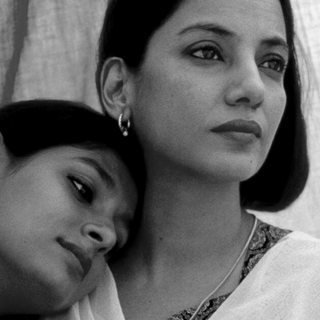
Women’s Summertime Small Businesses Grind to a Halt Under Lockdown
“We will be dependent on my husband’s salary, and I will have no money of my own all through the year,” says one entrepreneur.

The pickle, papad, and masala business has been the mainstay of lakhs of women across India. This unorganized sector, an age-old summer-time economy, provides for the many needs of women entrepreneurs, charitable homes, NGOs, and Bachat Ghats throughout the year.
This year, in lockdown, this business has been brought to a grinding halt. The unavailability of the required ingredients, closure of many food markets, restrictions on movement, and the fear of catching the coronavirus has made a huge dent in these women’s income.
Most of the women engaged in this business live under the poverty line, and the current situation has left them struggling and helpless. “Over the past few days, many of them have told me that they feel like NRIs – Non Required Indians,” says Ritu Dewan, vice president of the Indian Society of Labour Economics and president of the Indian Association for Women’s Studies.
The government has always failed to recognise these women’s enterprises as an important part of the economy. “It’s appalling that hardly any economic reforms or policies ever include these businesses,” says Dewan. “Even during this crisis, the centre hasn’t announced any relief measures or concessions for these women.”
Over the years, there has been no effort from the government to collect any data or conduct substantial research on these businesses. Hence, it is hard to estimate the exact number of women associated with these businesses. However, based on her 36 years of experience in labour and women studies, Dewan believes that this number runs into several crores.
Take for example, Mumbai’s N ward. Around two hundred Bachat Ghats in the area, with 10 women in each ghat, rely on the pickle and papad business. That is 2,000 women, who live below the poverty line, effectively have no business and no earnings this summer.
Related on The Swaddle:
Lack of Pre‑Natal, Hospital Care Have Left Pregnant Women Helpless During Lockdown
“In Mumbai, the availability of the material is not a problem, but the orders are,” says Sarla Rathod, community development officer of BMC’s N Ward. “People are scared to source food from outside, especially from women who live in slums, because most customers from higher economic classes think that these women cook in unhygienic conditions in the slums, which is not the case,” adds Rathod. The irony, however, is that it is these Bachat Ghat women who have been feeding people in quarantine across the city as well as migrant laborers.
Rathod believes that the failure of these summer-time business, through which women earn at least Rs 15,000 per person in during the three month season, will have long-term consequences on their families. “Everything that these women make is spent on their homes. They pay for their kids’ education, ration, and medical expenses – the basic needs. They hardly ever have anything left to spend on themselves.” If they are unable to make this money this year, their children might not be able to go to school in the next academic year.
Although the situation for middle-class women is not as dire, and they will manage to survive the year, the lockdown affects them significantly too, leaving them without an income of their own.
For the first time in the last six years, Bhopal-based entrepreneur Rakhi Shivadiya and the six other women who run her business with her haven’t been able to make a single item owing to the unavailability of ingredients. Every summer, this group sells around a ton and a half of their pickles, papads, moong badis, and chutneys to people across Bhopal.
“These are the only two-and-a-half months that I run my business,” Shivadiya explains. The mangoes she makes pickles from are only available then, and papad and wadis, which are sun dried, become brittle in very harsh sun of mid-May. “The profits made from the business pays for my children’s fees. But as I haven’t been able to make any money this year, we will be dependent on my husband’s salary, and I will have no money of my own all through the year.”
Shivadiya isn’t alone. Seven other entrepreneurs associated with Bhopal’s women’s NGO Kunjal Welfare Society and 28 laborers that help them pack and deliver the orders are facing the same problem. “Even if limited quantity of ingredients is available, it’s very expensive,” says Prabha Gour, co-Founder and director of the NGO. Moong, the main ingredient for moong wadi, which used to be available for Rs 30–40 a kilo before the lockdown is now retailing for Rs 100–140. “In these uncertain times, who will be willing to spend so much more on snacks,” adds Gour.
Women in Rajasthan – a state that loves its spices, pickles, and papads – are also in a similar situation. Mahila Mandal, an Udaipur-based NGO that relies heavily on its summer food business, is staring at heavy losses. “Every summer, we make 5–6 lakhs by selling these items and the funds are utilised to give tribal and destitute women sewing machines or some household items to start their business,” says Chandrakala, a senior administrator of the NGO. “This loss will definitely hurt us.”
Riddhi Doshi is a consulting editor and writer. She is also a dance and movement therapy practitioner and a passionate dancer. Her recent social media project on Indian textiles combines her love for storytelling and dancing.
Related


It’s Okay: To Not Have a Calculated, Cool Exterior
